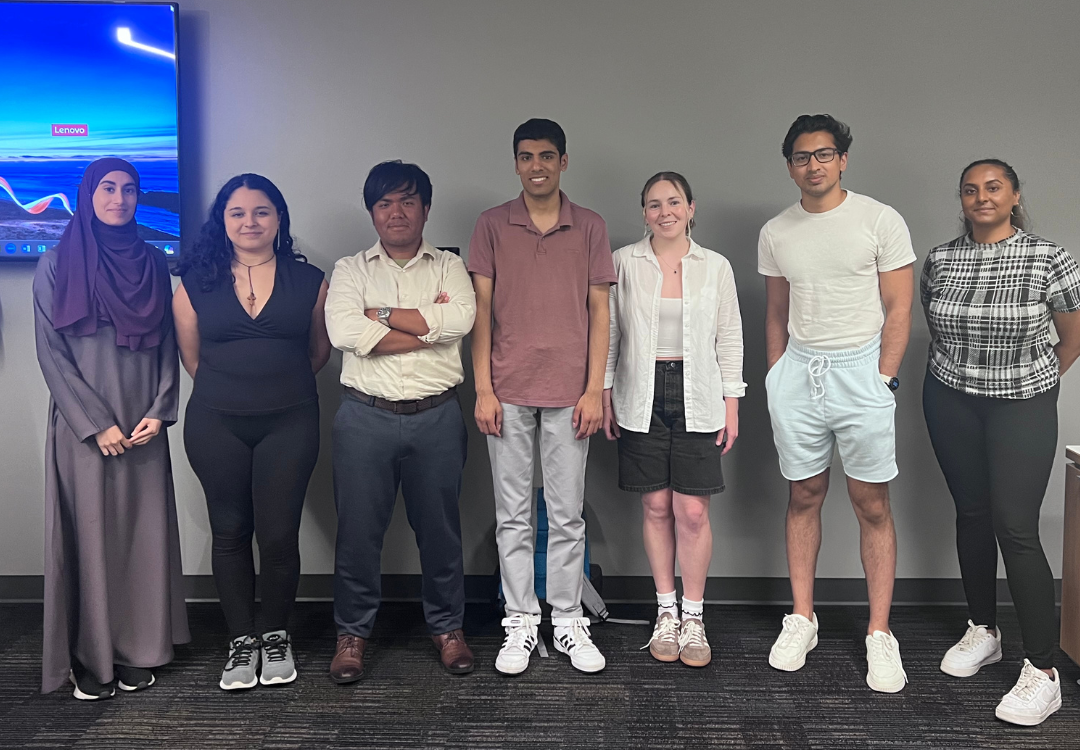
The SDGs Student Advisory Committee is a team of undergraduate and graduate students who are committed to addressing the United Nations’ 17 Sustainable Development Goals through student and community engagement. Our student advisors serve one-year terms during which they dedicate themselves to representing and promoting SDG initiatives through leading student engagement events and knowledge mobilization efforts across the wider U of T community, cultivating platforms of learning and action on the SDGs.
As we congratulate our newly recruited and returning members of the Student Advisory Committee, Arjun Yanglem, one of the committee’s returning members and a fourth-year Honours Bachelor of Science candidate in Psychology, Public Policy, and City Studies at the University of Toronto, Scarborough campus, reflected on his experience being an SDGs student advisor.
...
What initially drew me to serve on the Student Advisory Committee was the rare opportunity to contribute to real change at the institutional level. I had already been serving on several high-governance bodies across U of T and had seen firsthand how crucial it is to have informed, empathetic, and proactive student representatives in those spaces. So, when I saw that the committee was working at the intersection of student engagement and the SDGs, I was immediately drawn in. This wasn’t just another volunteer role; it was a chance to advocate for systemic change, bring forward student-driven insights, and help build bridges between the university’s leadership and its diverse student population.
This was a space that advocated for systemic change and brought forward student-driven initiatives. It aligned perfectly with the values I had already been living through my work at NATO Canada, the Ontario Energy Board, and as a researcher exploring the very systems and policies that shape our society. Joining the Student Advisory Committee felt like a natural extension of that work, but with a sharper global lens. I saw the committee as a space where thoughtful ideas could become real strategies and where the energy and imagination of students could help move the university forward in its commitment to the SDGs.
...
My time on the committee has helped crystallize the kind of leader I want to be: one who doesn’t just react to problems but works collaboratively to reimagine systems. The opportunity to put the SDGs into practice through tangible policy, programming, and community engagement reshaped my career ambitions from simply wanting to be "in" public policy to wanting to lead public innovation with empathy and equity at its core.
Being on the committee also encouraged me to think more globally while still acting locally. I want to take the lessons I’ve learned—how to engage communities, frame problems holistically, and mobilize action—and apply them on a larger stage. I’ve realized that effective leadership today means understanding complexity, listening deeply, and designing initiatives that don’t leave people behind. This committee didn’t just inform my vision; it sharpened it, gave it purpose, and reminded me that meaningful change is always possible when you choose to lead with intention.
...
What made this experience particularly impactful was the level of respect and seriousness with which student voices were treated. I’ve sat on many committees across the university, but the Student Advisory Committee stood out because it wasn’t just about giving feedback; it was about shaping the agenda. I was challenged to think more holistically and came to understand that the SDGs are not isolated targets but part of a deeply interconnected ecosystem. Advancing one goal often requires progress on several others simultaneously, and navigating those tensions and opportunities was an invaluable learning process. I learned how to navigate the push and pull between ambition and feasibility and work on creating a more lasting, equitable impact.
Change and progress don’t start with perfection. They start with presence and purpose. The Student Advisory Committee is proof of that. Student ideas are not just welcomed; they are actively used to build a better university and, by extension, a better world.
I’ve seen firsthand what happens when young people claim their space. Through Dialogues at 1265, for instance, we brought together some of Canada’s most influential leaders and 800+ students to engage in honest, necessary conversations about healthcare, journalism, criminal justice, and climate equity over the span of one year. That impact wasn’t created by experts or officials; it was created by students who believed their voices mattered.
The committee is no different. It’s a launchpad for those who want to learn, lead, and leave the university stronger than they found it. The actions of students, no matter how small, contribute to a larger mosaic of change. Your perspective as a student is needed. Your story is valid. Don't wait until you feel ready. If you care about making things better, then you already have what it takes.
...
Arjun’s insights and SAC’s initiatives rise to meet the greater concerns of students who are hesitant to see their contributions as just as integral to SDG advancement as those of researchers, postdoctoral fellows, and even faculty. But the truth of the matter is, the 2030 deadline looms. There is no “right time” to integrate students into this pursuit—the best we can do is to encourage their potential and realize this is an all-hands-on-deck situation.
Change can start right here, and we are encouraging it to start right here, at U of T—with forward-thinking students like Arjun at the forefront, who will not only see the results of the 2030 Agenda but also rise to meet the challenges and triumphs that will succeed it.

